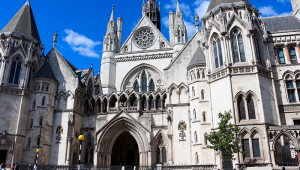
Seven local authorities started a joint action against Barclays Bank back in 2019 over LIBOR manipulation, centred on LOBO loans that had interest rates set in relation to LIBOR.
At the same time, Newham Council brought an independent claim against the bank.
In February 2021 a High Court judge dismissed the two cases, stating they had “no real prospect of success”.
However, Newham Council were granted permission to appeal the court’s decision and subsequently reached an out-of-court settlement with Barclays.
Barclays was one of the banks implicated in the LIBOR manipulation scandal that came to light in 2012 and the bank was fined for its involvement by both the UK and US authorities.
The councils’ claim was that Barclays had committed fraud by offering loans linked to that rate.
The councils maintained that, given their supposed knowledge of the manipulation, senior managers at the bank could have stopped any representations about LIBOR.
LOBO loans have a varying degree of association with LIBOR.
Many loan agreements do not directly mention the now obsolete reference rate, but some do, particularly regarding premature redemption clauses.
Additionally, a relatively small number of more exotic LOBOs originally used LIBOR in the interest rate calculation methodology, including “range” and “inverse floating” LOBOs.
Most of these have now been renegotiated into fixed rate loans, as was the case for Newham’s LOBOs with Barclays, which are understood to have been converted from range LOBOs to fixed rate loans in 2017.
Newham Council report on their website “The multimillion pound deal struck with the bank allows the council to reduce its interest payments substantially” although no further details are provided.
This does raise the question of whether other authorities can follow suit and suggest or initiate legal action to secure reduced interest costs?
What circumstances would need to apply?
The case is relatively complex and there may be some features of Newham’s loans that are distinctive, including the original basis for the interest rate calculation and representations made by the bank at the time the loans were arranged.
Authorities will also need to consider the statute of limitations, the period during which a legal claim can be brought, as many years have passed since Barclays was found guilty of LIBOR manipulation.
Clearly, in reaching this agreement the bank would have weighed both the cost of this settlement and likelihood of reaching similar agreements elsewhere against the expected cost and reputational risk of continuing to defend the action.
Lender’s appetite to retain these loans has been diminishing since the global financial crisis of 2008, Arlingclose has been engaged by many authorities to negotiate repayment and restructuring terms, unlocking significant savings.
While this legal settlement is interesting given the 2021 high court ruling, it does not automatically follow that this can be applied to all LOBOs, or former LOBO contracts. However, the desire for banks to reach agreement on restructuring and premature repayments, either with or without a legal challenge, is part of a continuing trend.




















